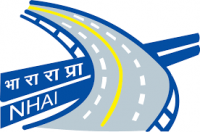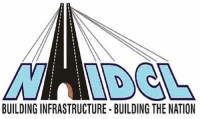
NHAI has approved an estimate of Rs. 58.16 Crore to mitigate impacts on Wildlife in Karnala Bird Sanctuary (KBS) for widening of part of Panvel – Indapur section of NH-17. This section constitutes the direct connectivity from Mumbai to Goa.
The highway stretch passes for about 1.5 km length within the Karnala Bird Sanctuary under Thane wildlife division of West Mumbai Wildlife Circle. NHAI applied for wildlife clearance for the project which was granted in the 34th meeting of the Standing committee of National Board of Wildlife.
While recommending the proposal of NHAI, the State Government also agreed that the stretch of 3.5 km within and outside sanctuary area (1.5 Km within the sanctuary, and 1 Km on either side) would be a permanent bottleneck and will hinder the traffic speed on the highway, if it is not widened. The total length of the project is 84 Km, and the total project cost is Rs 943 crore. The State Government endorsed the proposal of widening the highway within the sanctuary, saying that this may also smoothen the traffic and reduce the fuel emissions from recurring traffic jams that may be harmful to the birds and other wildlife.
The KBS is covered with moist mixed deciduous forest and falls in the Western Ghat bio-geographic zone. The sanctuary is particularly rich in climbers and as many as 11 species are recorded from KBS. Among mammals, three species of primates (Common Langur, Bonnet Macaque and Rhesus macaque) are occurring in the sanctuary. Barking Deer, Wild Pig, Jackals, Hyaena, Jungle Cat, Squirrel, Porcupine and Indian Hare are reported from the sanctuary. KBS is particularly known for its rich avifauna and is home to over 146 species of resident and 37 species of migratory birds that visit during winter. Rare endemic birds of Western Ghats such as Malabar grey Hornbill, Ashy Minivet, three-toed Kingfisher and Malabar Trogon are reported from Sanctuary. Among other significant bird species the records of Malabar Whistling Thrush, long-billed Vulture, Indian Scimitar Babbler and Shaheen Falcon are significant.
The major mitigation measures being adopted by NHAI, as per the recommendations of the Wildlife Institute of India, include four wildlife passages (each 30 m wide and 3.5 m high) in the 1.5 km sanctuary stretch. Besides, seven number of box culverts (3m wide and 3m high) are also being provided. As there are no large animals in the KBS, box culverts may also create permeability for wildlife across habitat patches. In all, 27 nos. of structures shall be provided for total length of 3.5 km stretch, i.e., 12 falling within 1.5 km length in protected area, and remaining 15 on the 1 km stretch on each side.
NHAI approval also includes other wildlife management measures like retaining wall, fencing, signages, watch towers, provision of water for wildlife. An additional amount of Rs 15 lakh shall also be deposited in the fund of KBS for awareness raising among people through developing the nature interpretation centre.





Leave a Reply
You must be logged in to post a comment.